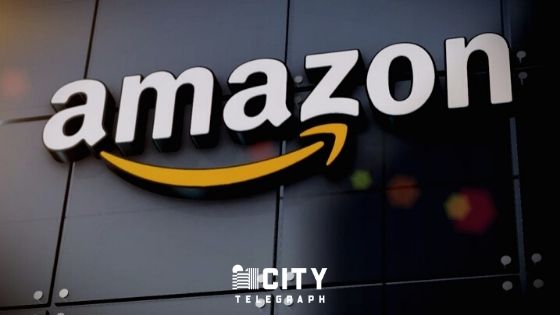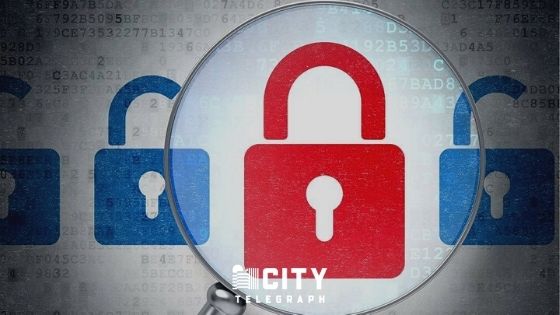For many managers in companies, the blockchain consists primarily of the cryptocurrency ” Bitcoin ” and is now seen as a synonym for Bitcoins. The technology can do a lot more. Thanks to its decentralized approach and its enormous advantages in terms of security, traceability and transparency, the blockchain can solve numerous problems in companies. At the same time, the use can save costs and increase customer satisfaction. It is therefore worthwhile to deal with the blockchain and its use in the company.
With the blockchain, companies and organizations can better satisfy the requirements of customers . That is ultimately the goal of every company and most organizations. If processes in the company can be processed more effectively and faster, then that ultimately means better products that also arrive at customers faster and more safely (cold chain).
Blockchains can replace middlemen and make unequal business relationships fairer. Due to the decentralized structure of the blockchain, there is no single point of failure or server systems, the failure of which can have major effects on companies.
In a blockchain, each participant (node) has a complete copy of all data. Exceptions are off-chain data. We will also go into this topic in this article. So many scenarios can be handled with the blockchain.
Approach to solving problems in the company with the blockchain
In order to convince those responsible in the company to use the blockchain, a problem should first be identified. A solution scenario for this problem can then be developed on the basis of the blockchain without going into the technology. First of all, it only matters that there is a problem that requires a solution. Which technology can be used to achieve this solution is not yet relevant at the beginning of the process.
For example, if there is a problem or potential for optimization in a supply chain, a solution approach and its result can be presented to those responsible. Only when the expected results convince those responsible does it make sense to discuss the necessary technology and its use. Blockchain technology offers many possible solutions, especially in supply chains and complex production processes.
Those responsible in the company are initially interested in solving the problem. How the problem solution is to be implemented is initially of secondary importance. First of all, it is interesting that there is a problem and a solution. If this approach also brings other advantages, such as cost savings, then nothing stands in the way of the blockchain project. Here it can also make sense to fall back on external expertise so that all technical issues are taken into account.
Plan the use of the blockchain


It makes no sense to use blockchain technologies in companies without planning beforehand for which areas of application the blockchain can be used sensibly. Of course, after the introduction, other areas in the company can work with the blockchain at any time. For a first project, however, a problem should first be identified that can be solved by the blockchain.
The comprehensive use of the blockchain in a company can begin with an initial blockchain project and the associated solution approach. As soon as the advantages are clear, there are in many cases other areas of application that benefit from the use of the blockchain.
Due to the open-source approach of the blockchain, it is basically easy to carry out a first project and implement the blockchain for a solution. There are no expensive licenses and in many cases, blockchain infrastructures can be integrated via cloud solutions. This facilitates scaling and at the same time enables the use of additional resources in the cloud, for example for analysis.
If it is clear where and how the blockchain can be used sensibly, an initial project can quickly lead to success. An example is transparency in a supply chain for a perishable product. Can the transport of the product currently be tracked, are temperatures, storage times and transport routes traceable? These are questions that can be answered with the blockchain.
Companies that can provide comprehensive information about the complete life cycle of a product benefit from more consumer confidence and can expect more sales. At the same time, there is potential for optimization in the supply chain, which results in lower costs.
This is of course ideal for companies. Companies can track their products better, production costs can be reduced and sales figures increase at the same time. Another advantage is the reduction of weak points in the production cycle. Here, too, there is further potential that the blockchain can leverage.
Blockchains can be implemented for companies of all sizes
When using the blockchain, it does not depend on the industry or the size of the company, because in almost all companies there are challenges for which blockchain technology can be exactly the right approach to run processes better, safer and faster.
The biggest advantage of using the blockchain is that (many) partners in a business relationship can also be securely connected to each other internationally and can exchange data. These can be suppliers, customers, partner companies, branches, mobile employees and other people who work together on a goal and (have to) exchange data.
Wherever transparency and traceability play a role, where counterfeiting should be avoided and where automated processes work better than manually, the blockchain can bring enormous advantages.
Blockchain can be sensibly integrated into companies – Microsoft, Amazon, IBM and Co show how


Large IT companies such as IBM, Microsoft, Oracle, Google, Amazon, Facebook and many others have long recognized the advantages of the blockchain and have integrated the functions into their internal networks. At the same time, the large cloud providers are now making resources available on their platforms with which companies of all sizes can create projects and operate blockchains productively.
One advantage of using the blockchain in the company via cloud infrastructures is that data exchange with partners, customers and suppliers can be handled easily and securely without having to provide your own infrastructure in the company. Most blockchain technologies are open source. Licensing is therefore very easy.
The blockchain can solve these problems in general
There are various areas of application that can typically be made much more effective, safer and faster with the blockchain. Well-known examples of this are of course supply chains, as the individual steps are easier to understand and can be automated.
With the blockchain, transparent and forgery-proof evidence can be provided for any type of product. Processes that cover finances can be ideally implemented with the blockchain and can be processed much faster in international relationships than with conventional technologies.
Automate and accelerate supply chains
In the area of supply chains, companies can almost completely automate the processes and ensure complete transparency. Order processes can be triggered automatically and securely at the same time.
All authorized persons in a supply chain can track at any time where a particular item is up-to-date and when it will arrive at its destination. The triggering of the order processes is easier, more transparent and can be linked to other systems for analysis. The control of the delivery routes and the payment of invoices, the transactions in partner companies, the monitoring of the goods between the supplier and the customer is made for the use of the blockchain, since the processes are available in the blockchain.
If companies are still working with sensors at the same time, their data can also be stored in the blockchain and thus used more effectively. Internet of Things infrastructures can therefore be ideally used with the blockchain. The Industrial Industry of Things combines the advantages of networking end devices and sensors with industrial devices.
In this context, the blockchain can ensure that the data is decentrally available to all groups that should have access to the data. At the same time, the blockchain can use smart contracts to automatically trigger orders in a supply chain when a sensor reports that certain products need to be reordered.
Simple supply chains are already benefiting from blockchain technology. However, if more complex supply chains are in use in the company, the individual areas benefit in particular. If several logistics partners have to work together, they can receive data via the blockchain, while higher-level companies can integrate the logistics information and other data from production.
The blockchain offers flexible information flows here, in which only the people who need them can see data. The data is available in the blockchain and can therefore be used where it is needed.
In addition, volume discounts are taken into account. These processes can also be fully automated with the blockchain and smart contracts without third parties gaining unauthorized access to this data.
Track products: prevent counterfeiting with blockchain
Counterfeiting can also be prevented by the blockchain, as the entire life cycle of products remains traceable, including all transport routes. Here, too, companies and organizations benefit from the decentralized storage of data in the blockchain.
This is a sensible area of application for all industries, but especially for companies that deal with drugs and food. Expiration dates and transport routes are just as important here as tracking the cold chain and preventing illegal business and counterfeiting. Pharmaceutical companies can track the entire production and logistics cycle and make it available to customers and authorities on request. This is particularly important with sensitive products such as vaccines.
With the blockchain, the temperature for a product can be secured in real time at any time. At the same time, the blockchain links this data with the entire life cycle of the product, so that customers can also verify the cold chain, as can supermarkets, small retailers and partners of the producer.
International business relationships and raw material tracking
The international payment of accounts receivable or the exchange of currencies is easier with the blockchain. Companies that work together in a blockchain can use their own internal currencies or rely on cryptocurrencies from the public blockchain, for example Bitcoin or Ether. Since the currencies can now be exchanged for other currencies worldwide without any problems, payment transactions in international goods traffic can be processed in a matter of seconds.
With many products, customers and authorities can hardly understand who is involved in production and whether all those involved are complying with regulations and laws. The traceability of raw materials plays a very important role in production in many cases, and not only for food and medicines.
To a large extent, there are also health risks here. When using the blockchain, every supplier can be saved without any problems, including their products and their life cycle. This enables comprehensive, transparent and highly secure tracking of all products and their life cycle. This creates trust with customers and improves the overview for those responsible in companies.
Exchange patient data and secure authentications


With blockchain technology, it is possible to securely exchange patient data and also to ensure that only authorized persons have access to the data. Upon request, the transmission of the data can also be made dependent on the consent of the patient.
Authentications can also be handled more easily and securely with the blockchain. This goes so far that complete ID cards can also be converted electronically. Because the ID data is stored in the blockchain, the ID cards are forgery-proof. This applies to states as well as to companies. Wherever authentication is required, the blockchain can verify the authenticity of the data.
Sensitive data can also be outsourced
Many companies shy away from using the blockchain because the technology is too transparent. Of course, it does not make sense in all cases to save all data in the blockchain, for example, discounts, personal information, or payment information. But this can also be easily implemented with the blockchain.
There are also technologies with which sensitive data can be outsourced from the blockchain (off-chaining), while the entire process is otherwise handled via the blockchain. This technology can not only be used in private blockchains, but also in the public blockchain. In these processes, however, the data is almost as secure as when it is stored in the blockchain. However, the data is stored in an external system and can therefore only be used by authorized persons. At the same time, these processes also benefit from the blockchain and at the same time, it is ensured that sensitive data is stored reliably and securely.
With off-chaining, scaling problems of blockchains can also be solved. Since certain data is not in the blockchain, this also reduces the size of the blockchain database. At the same time, the data can be saved on very fast systems that are optimized for off-chain use.
Use clear rules and contracts with the blockchain
When using the blockchain, clear rules for data storage and processing apply. At the same time, there are computer programs that track and control supply chains according to strict rules. When operated in the blockchain, these computer programs are known as “smart contracts”. The contracts provide security for all partners in a supply chain and at the same time ensure constant traceability and transparency. Smart contracts cannot only be implemented between two or a few partners. Multilateral areas of application can also be implemented with smart contracts.
Conclusion
Blockchain technologies can provide real added value in almost all industries and companies. Wherever transparency and traceability of processes is necessary, the blockchain can help to make access safer and more effective. In logistics, the blockchain already plays a central role in many companies and also helps with the digital transformation of companies and organizations.

